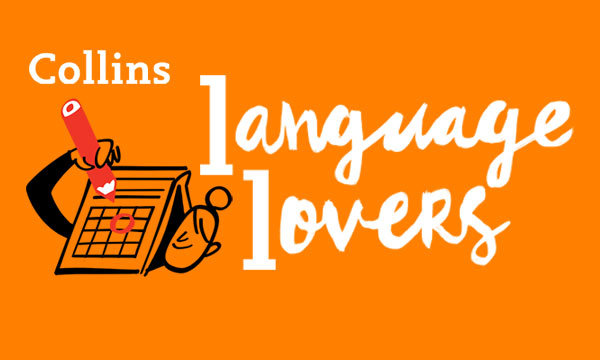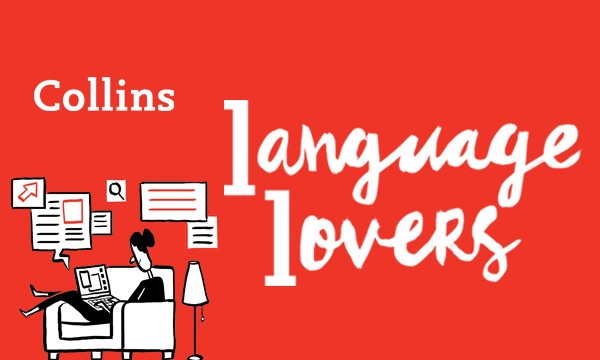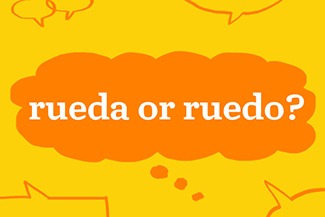Who doesn’t love a picnic? Eating is one of life’s great pleasures, second only to being outdoors and in contact with Gaia in all her soothing variety. Add to those two the social element involved and bingo! you’ve got a well-nigh perfect event.
Is thinking of picnics as much of a fast track back to childhood for you as for me? I’ll always remember when my older brother and I, when really little, summer-holidayed on a farm in the West Country. For adventure, Mum and Dad would take us for a stroll, find a nice flat area of grass over which to carefully spread our wool(l)en travel rug, open our picnic basket or picnic hamper and help us tuck into our picnic food in the shape of simple, easily portable child-friendly fare like cold meats, cucumber sandwiches and boiled eggs, while pouring a refreshing tea from our trusty thermos flask (or thermos bottle for some people; from Greek θερμός [thermos] ‘warm, hot’).
And does that hamper to hold our picnic goodies have anything to do with the verb hamper? Read on to find out.
Our tucker in those halcyon days always included a packet of those magical unsalted crisps/potato chips of yesteryear. Delving inside each packet, you’d find a minuscule* blue-wrapped packet of salt about the size of an adult’s thumbnail. The excitement – OK already, those were simpler times – consisted in unwrapping the packet-ette and pouring its contents over the crisps, thus letting your childish mind imagine you were actually MAKING your own food. Shake the bag too briefly, and some crisps would be sodium virgins, others salt mines; shake it too energetically, and you’d end up with evenly salted crisp rubble.
Them was less complicated times. These days picnics are big business and food tastes have changed beyond extravagance. Online there’s a cornucopia of offerings, from Winnie the Pooh-themed picnics and picnic blankets to fig and serrano ham picnic bread and other exotic picnic loaves. Nowadays, the food might be daintily named finger food, the thermos has become a cool bag or cool box, and in the age of the car, the picnic might take the shape of a tailgate party.
Picnics, indeed, have become ubiquitous. Road signs with their enticing image of a tree and a table will direct you to picnickable lay-bys. Ah! Breathe in that fresh air and the scent of pines or petrichor! Many a National Trust or English Heritage site has a designated picnic area, even better if near a viewpoint.
Though falafels, sushi and other untraditional items are on some bills of fare, according to research undertaken for a major baker, a full 71 per cent of Brits will be sure to take crisps on their picnic, and 58 per cent said sandwiches were still the centrepiece of their en plein air repast.
While falafel is from Arabic falāfil and sushi – d’oh – from Japanese (first used in English as long ago as 1893), sandwich is home grown. Like Melba toast or Caesar salad – note to self: now, there’s a nice idea for a picnic treat – it’s an eponym, a word named after a person. The person concerned was the fourth Earl of Sandwich (1718–1792), a nobleman so addicted to gambling that sessions might last days. To avoid leaving the gaming table, he instructed his servant to bring him a couple of slices of bread with some cold roast beef bunged in between.
Picnics, though essentially democratic because everyone sits at the same level, have also become a bit smart. For instance, the Fortnum & Mason’s Family Picnic Hamper will set you back just shy of three hundred smackeroos. Picnics are de rigueur at the opera bashes held at private houses like Garsington and Glyndebourne. And there can be few smarter picnics than at the Glyndebourne Festival Opera, where dinner jackets and evening dresses are the order of the day. Mind you, were I there, I’d be too worried about dropping hummus down my tux** to fully enjoy the experience.
If picnics are such a major part of the Anglosphere’s imagination, when did they start to exert their hold? And where does the word picnic come from?
Historically, people on outdoor expeditions lasting hours or a whole day required to be fed. The occasion par excellence for such feeding was aristocratic hunting parties. Thus, fifteenth-century illuminated manuscript illustrations of a livre de chasse (hunting book) show the richly dressed nobleman seated at the head of a sort of ‘high table’ cloth while the lower orders tuck in at theirs. The exquisite painting of 1723 here by the rococo French painter François Lemoyne shows, set against a lush landscape background, a small party of well-dressed toffs sipping wine next to a kerchief-sized tablecloth sustaining a humble loaf and next to it, dead gamebirds. Other pictures of the period show many more people and much more lavish spreads.
But one cannot retrospectively apply the word picnic to such depictions a) because the word didn’t exist in English until, at the very earliest, 1748, and b) they don’t match the modern definition which, as Collins puts it, is: ‘a trip or excursion to the country, seaside, etc, on which people bring food to be eaten in the open air’. In other words, the picnic itself is the objective and the trip is specifically undertaken to enjoy it.
The first picnics
Pic-nic the word (then hyphenated) first reached English in a 1748 letter by that multifaceted aristo Lord Chesterfield, whose Letters to His Son on the Fine Art of Becoming a Man of the World and a Gentleman Dr Johnson famously dismissed as teaching ‘the morals of a whore, and the manners of a dancing master’. Picnic turns up once in Jane Austen’s novels, in Emma, referring to a somewhat fraught event at the famous landmark of Box Hill in Surrey.
In the early nineteenth century picnics were a meal to which guests each brought their own contribution of food, and they were very much an upper-class affair. There was even a Pic Nic Society, whose attendees were obliged to bring six bottles of wine! Many members were French aristocrats who had fled to escape the rigours of the French Revolution.
And France is where English borrowed the word from. Picnic is an anglicisation of French piquenique, first recorded in the late seventeenth century, whose origins are debated. Quite possibly the French combines Old French piquer ‘to pierce; to pilfer’ and ‘nique’, meaning ‘nothing whatever’. Whatever the origins of the two halves, they are echoic or reduplicative, in the same vein as English helter-skelter or mishmash.
By the middle of the nineteenth century in Britain, picnics had come to mean an organised outdoor meal where the host(ess) laid on the food. Queen Victoria picnicked on the Balmoral estate and even had a picnic lodge built there in the 1850s. By that time, picnics for the wealthy were really starting to take off.
Mrs Beeton’s 1861 menu for a picnic for forty people (!) includes a staggering array of beef and lamb joints, not to mention six roast fowl, a tongue, four pies, six medium-sized lobsters, eighteen lettuces, six baskets of salad, and six cucumbers. I feel bloated just reading that list.
To follow, the dessert delights included a cold plum pudding (yuck!). She recommended taking three corkscrews to cope, presumably, with the six bottles of claret and six of sherry she recommends, not to mention the champagne à discretion (‘unlimited, as much as one wants’).
Nowadays the world is one’s oyster (Shakespeare, Merry Wives of Windsor) when choosing picnic fare, but quiche, unheard of in Britain in Mrs B’s day, is a strong contender if my Google for ‘picnic food’ is anything to go by.
Quiche (first recorded in 1925 in English) is of course short for Quiche Lorraine and the dish comes from the French region of Lorraine, where German dialects have long been a linguistic influence. Thus, it is plausible that French modelled quiche on the German dialect Küche, a diminutive of German Kuchen, ‘cake’.
Does that hamper to hold our picnic goodies have anything to do with the verb hamper? No, nowt, nix, nada. As it happens, it’s also ultimately related to German.
Hamper comes from the fifteenth-century hanaper, which is from Old French hanapier, from hanap ‘cup’, of Germanic origin (compare Old High German Hnapf bowl, Old English hnæp).
An illustration of how words can change shape
Try saying hanaper quickly and you’ll soon see how words can change shape over time. The /n/ you want to pronounce easily becomes an /m/ for the very simple reason that /m/ is phonetically closer to /p/ than is /n/. Specifically, /m/ and /p/ are bilabial sounds, that is, produced by bringing both your lips together, whereas /n/ isn’t. (It’s alveolar.) Try saying m and p, and you’ll see their relatedness. So it’s more economical of effort for the mouth and tongue to ‘assimilate’ that n to an m. Then just elide the second a of hanaper and, hey presto, you have hamper.
And, on a final linguistic note, which other common verbs than picnic end in –ic so that you have to add a k to certain forms? It’s a small set, including frolic, magic, mimic, panic and traffic.
* minuscule – the second vowel is originally a letter u, in keeping with the word’s Latinate origins. However, it is so often pronounced as if it were /i/ that the spelling ?miniscule is recognised by many dictionaries as a legitimate variant.
** tux – Who knew? Tux is short for tuxedo, which is another sort of eponym, this time based on a place, Tuxedo Park, an affluent enclave of New York. Dinner jackets were worn at the inaugural ball in 1886.
By Jeremy Butterfield
Jeremy Butterfield is the former Editor-in-Chief of Collins Dictionaries, and editor of the fourth, revised edition of Fowler’s Dictionary of Modern English Usage.
All opinions expressed on this blog are those of the individual writers, and do not necessarily reflect the opinions or policies of Collins, or its parent company, HarperCollins.



